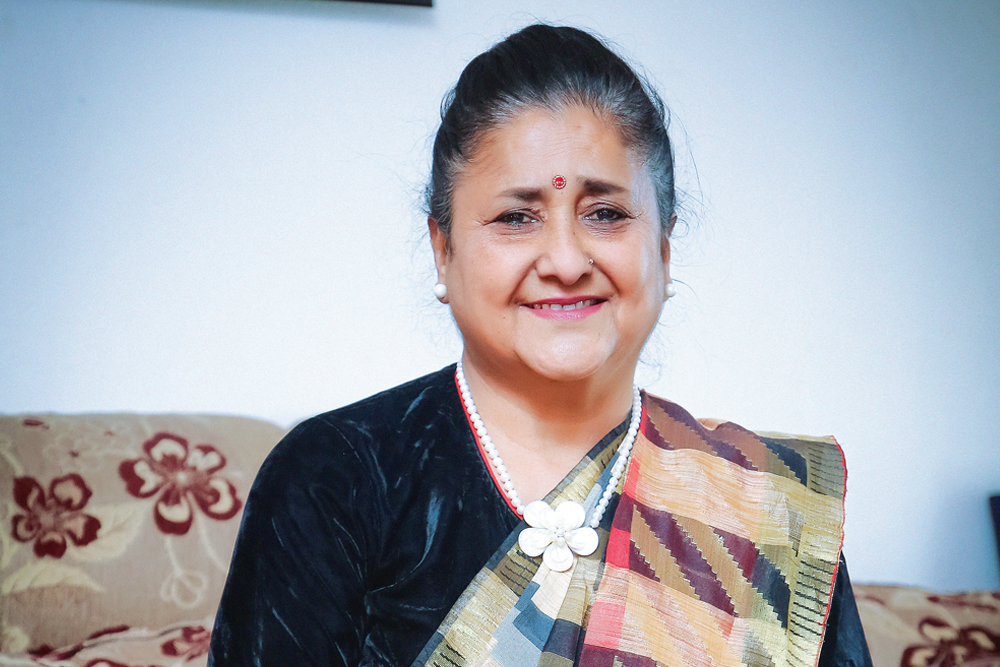
Savitree Thapa Gurung
Former Commissioner, Commission for the Investigation of Abuse of Authority
“Ever since I started my career, I never settled for anything if it was not right. If something was not good, I always raised my voice against it. I used to raise questions with confidence that helped me create a greater identity. I am a feminist and have my own life principles. I will never feel inferior even if my husband tries to make me feel down,” states Savitree Thapa Gurung, the first woman who became commissioner in the 32-year history of the Commission for Investigation of Abuse of Authority (CIAA).
Gurung’s professional career started in the American Peace Corps as a Language and Cross-Cultural Trainer. In 2007, she worked as a consultant for the National Planning Commission. A year later, she was hired by the Nepal Federation of Indigenous Nationalities as a consultant. She was employed by the State Restructuring Recommendation High-Level Commission in 2011 as a commissioner. She has used her skills to work as a programme officer for the International Institute for Democracy and Electoral Assistance, an intergovernmental organisation that promotes and strengthens democratic processes and institutions globally in order to create legitimate, enduring democracies. Prior to her appointment as a commissioner at CIAA, she taught political science at Tribhuvan University for 26 years.
From 2007 to 2012, Gurung completed her doctorate in political science at Jawaharlal Nehru University in India. She completed a Master’s of Public Policy at Murdoch University in Australia from 2000 to 2002 prior to that. Additionally, she completed a postgraduate diploma in population and sustainable development from the University of Botswana in 1997–1998. “Prior to that, I completed a two-month summer programme at the University of Oslo to earn a diploma in International Development Studies,” she shares. She had also previously earned a Bachelor of Education in 1984 and a Master of Political Science in 1983. I completed these two concurrently. “All the education I received till date are full scholarships,” she states with a touch of pride, and rightly so.
In this edition of Business 360, Gurung speaks about various aspects of leadership.
How do you define leadership? Is leadership inborn or acquired?
Leadership is all about bringing your thoughts into practice. Leadership is a quality that grows over time with life events and experiences. I believe leadership builds with the kind of education and the exposure one receives. In my case, it grew with time. I used to be a very shy person before and later my personality changed. The number of national and international seminars I attended built the leadership quality in me.
What are the qualities that a leader must possess?
A leader should be strongly able to articulate their vision. They must not be distracted from the goal by greed, bribery, or being influenced. A leader must never be manipulated easily. While I was working as a commissioner, there were many instances where I could easily have taken a bribe, but I knew that by doing so I would always be dissatisfied with life. I may not have much money but if I am satisfied and happy; that’s the biggest achievement.
How can one win over or influence people?
If you keep your character clean, fulfil your responsibility properly and do not submit to any type of greed, then people will trust you. Trust is the biggest factor when it comes to winning over people. In my case, I am always fair. I show the real and practical side of me. Initially at CIAA, it was very difficult to even bring female voices to the forefront, and to influence something was beyond imagination. However, I had the courage to speak out. I used to complain about not having enough female representatives. Whenever we used to have meetings, there used to be no female, and even today, we see very few females in decision-making positions.
What were the challenges you faced as a woman leader and how did you overcome them?
Throughout my journey in CIAA, I went through a lot for just being a woman. There were times when my guards disrespected me. Whenever I used to be walking with my husband, people used to think that my husband was the commissioner. They had this concept that only a male can be a commissioner. Even in conferences and meetings, people used to greet my security guards but not me. Later on, as I started to age, I developed problems with my legs and I could not walk fast. Observing this, the security guards of my senior colleagues used to cross my path which was unethical and disrespectful.
I realised I had to overcome this just on the basis of my performance. So, I focused only on my performance, started behaving in a more mature manner, and also gave my opinion when it mattered. Slowly, my senior colleagues began taking note of my opinions and respecting me.
The patriarchal mindset is gradually changing but even today there are people who are reluctant to accept a female as a leader. Though a feminist, I could not use the feminist approach completely to bring about change. Over a period of time, I worked to make certain amendments in the rules and regulations. For instance, for various national and international opportunities, males used to be given preference. I changed that trend. I initiated sending at least two females among five people for any kind of training or seminar. For the first time in its history, CIAA once sent four females for a training in South Korea.
There is a rule of including 33% women in any constitutional body which means among five members in total, two must be women. But in practice, the male staff especially don’t let this happen due to their fear of falling behind their female counterparts. Advocating for females is important but again the situation is such that even if we advocate for increasing the number of seats for females, there are not enough females who actually come for the position. Therefore, I insist our female population to be educated, aware and empowered. However, we must understand that academics is not everything. There are examples where women who have no academic degrees have excelled when provided with opportunities and enough exposure. Confidence is the key. Females are doing fantastic these days.
When should a leader pass on the baton?
I have been appreciated for creating more women leaders. But I have also seen women not want other women to become leaders. Many women feel jealous and insecure and want to keep all the opportunities for themselves only. I may sound negative saying this but I am talking about the things I have seen in my life.
I have always been open to providing opportunities to those who are eligible. I feel strongly that nobody can take away my knowledge and skills from me; the opportunities that I am capable of will ultimately come to me.
I don’t understand when males do not want females to take on the leadership position but I am disappointed watching females doing the same.
What is your leadership mantra?
Self-confidence and a positive mindset.
Is there any ideal leader that you look up to and why?
My mother because she took the initiative to educate me, and education has helped me be who I am today.
How do you view leadership in the present day?
I see more educated and aware emerging leaders these days. The younger generation puts values and ethics above all. They have that patriotic feeling and will never cheat or corrupt the country and its people. Now, I hope the new leaders will also focus on youth empowerment and will stop the brain drain. Until and unless, one generation sacrifices, the country will never evolve. The important thing to work on right now is to stop the ongoing corruption.
Have you faced any failure and what did you learn from it?
I can never forget the Baluwatar incident. There were allegations of corruption against some top leaders including the prime minister of the country. But within the CIAA team, they decided to detain people up to the vice president and not do anything to the prime minister. I felt it was wrong and voiced out that this was not ethical and everybody who was involved must be taken into account. However, the chief commissioner did not agree; there was favouritism due to political affiliations and I could not do anything. I felt bad. I felt like a failure. What I learned is that the final decision should not be vested only on the chief commissioner and that the voices of each of the commissioners should be heard and decisions should be taken accordingly. Also, the provision of Note of Dissent needs to be introduced.
What aspects of your personality have helped you to serve various roles in the past?
I was able to serve these positions because of my interest in learning that led to completing my education till PhD. But I must say that education alone would not have helped. Exposure has also helped. When it comes to exposure I must not forget one person who used to be a feminist activist, poet, author and social scientist, Kamla Bhasin. I had participated in a lot of her training programmes and workshops. This exposure helped me become confident and outgoing.
I take my responsibilities seriously and never miss an opportunity. I also have a habit of doing research. I keep myself updated and informed. I am grounded, always down to earth. I have a non-judgmental attitude. I do not discriminate. I stay away from negativity and lastly, I do not hesitate in approaching people. Nobody comes to you and provides you with the opportunity; you, yourself need to approach and seek it.

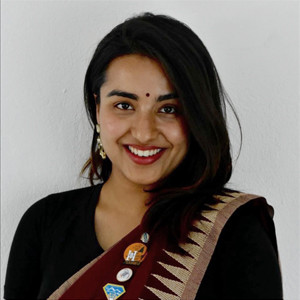

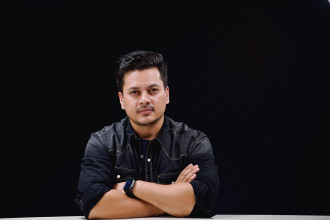
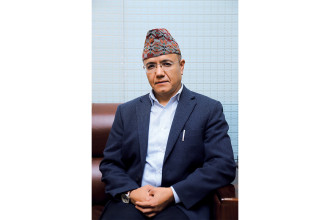
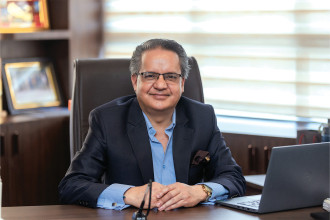
-(1)-1752214965.jpg)